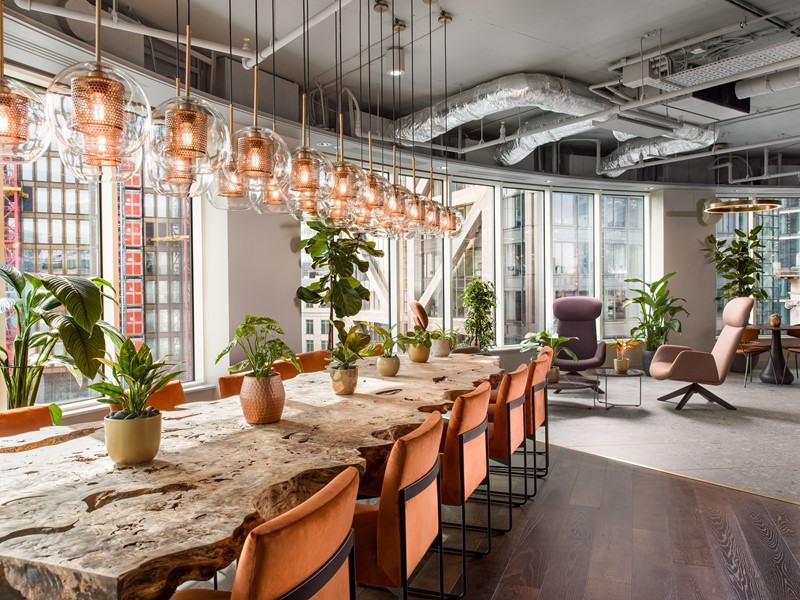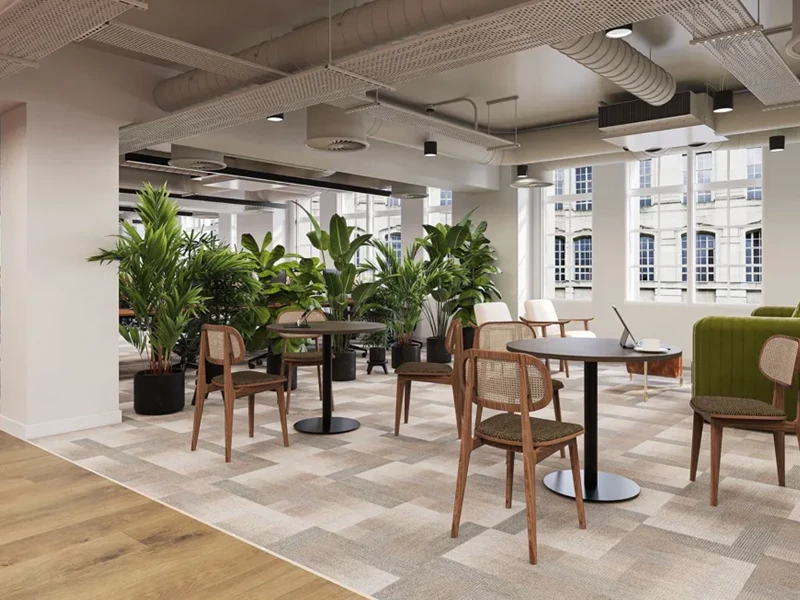The circular economy is an alternative to the linear economy of make, use and dispose. The key principles are focussed on minimising the amount of virgin materials we use, designing products in a way to enhance lifespan and longevity. With sustainability and the impact of climate change on our planet at the top of the agenda for many, now is the time to make best use of our materials and resources.
What is a circular workspace?
Alex Knott (AK): Firstly, the term circular economy needs to be understood. A circular economy is a model which plans to maximise the value of products and services whilst reducing waste. The whole lifespan of a product or service needs to be considered at the outset; in other words designing out waste. This can be applied to workspaces in many ways, but fitouts have a very clear application. A circular workspace embraces circular economy principles in both design and operation by increasing leasing, reusing, repairing, refurbishing and recycling materials and furniture to ensure they can be used as long as possible and/or repurposed.
How achievable is a fully circular workspace?
Dan Jestico (DJ): In essence, this would be a workplace that is never refurbished and produces zero waste in operation. Clearly not practical from a tenants perspective so developers, landlords and tenants should look at what they can do to influence fitouts and ensure that the design and operation reflect the ability to reuse materials and products and avoid waste.
AK: The above, can be applied to flexible workspace as the occupiers/customers do not own the fitout or furniture, therefore operators are able to influence the decision, where a management agreement is in place the landlord and operator have this control jointly.
What is driving this change?
DJ: Globally, we are producing more waste than ever before. Construction waste in the UK accounts for around 60 per cent of our total waste so we need to be doing something about it now by employing circular economy principles in practice.
AK: We all have a responsibility to drive this change and we are seeing landlords, operators and tenants demand more from a sustainability point.
What are some of the advantages and challenges?
AK: The clear benefits are that it helps the environment and encourages forward thinking. Challenges we have seen from operators attempting to provide a circular workspace is keeping their fitout costs in line with the competition.
DJ: The challenges include the conflict between wanting to provide up-to-date fit outs that reflect post-pandemic practices and reusing existing spaces and materials. Refurb strategies need to be carefully considered and thought through to avoid wasting products, especially when they haven’t reached the end of their functional lifespans. A circular workspace has huge benefits in that in provides flexible modern office design strategies, which in turn allows for more unique design approaches that embrace recycled and reused products.
How easy is it for a developer to convert existing office space to follow a more circular model?
DJ: We need to switch the approach to lending stuff to a building that can be reused and recycled for different projects. Look to manufacturers for solutions. For example, lighting as a service, leased floor coverings and reusing floor tiles are easy wins to ensure a more sustainable design.
Developing a long life, loose fit approach to buildings can extend building’s usable lifespans. By designing in layers, which reflects the fact that different parts of the scheme have different lifespans and design requirements, teams can work out how to make the most of the various ‘layers’ of a building, addressing the site, structure, façade, services, spaces and equipment.
Koba has recently announced its launching a flexible office space. Are we likely to see more flexible offices coming to the forefront?
AK: Koba’s business is focused on the circular workspace and their commitment to the environment is forward thinking. With the increasing demand from occupiers to take environmentally friendly space, we will only see flexible office providers strive to be better.
DJ: The market tends to drive change and I think with circular economy, the market is already heading in a positive direction.
For further information on Koba and their plans, contact Alex.







